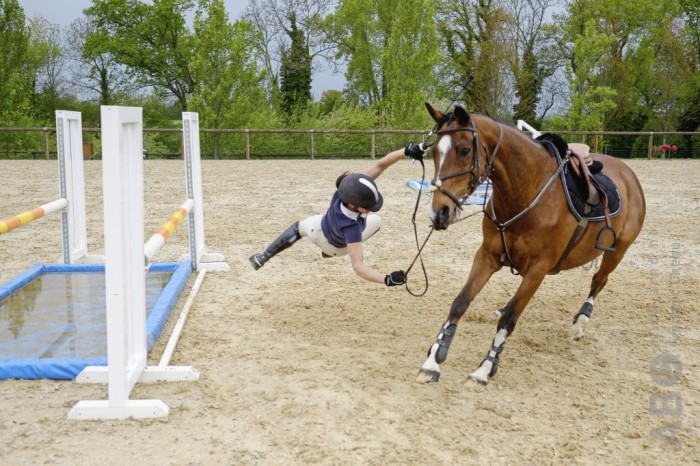
Spine fractures caused by horse riding
This article from the Netherlands states that one in seven equestrians gets injured yearly as a result of equestrian sport. Because of this, horse riding is seen as one of the most risky sports. A horse can weigh over 500 kilos, gallop 50-65 kilometers per hour and kick with the force of 1,8 times their own body weight. Beside this a horse has a will of its own. If you keep this in mind and you will know (even without scientific knowledge) that there arises a high risk of injuries.
This article looked at fractures in the spine associated with riding. The study examined demographics, X-rays of the fracture and the functional possibilities of the equestrians through a questionnaire. This questionnaire provides an indication of the limitation experienced by the patient in their daily life. The data was collected from 1990 to 2003 (13 years).
In the 13 years of collected data, 32 patients were seen with a total of 36 fractures in the spine. The majority (28) of the patients were female. Most fractures occured at the transition of the lower back to the upper back (78% in the thoracolumbar joint). Ten patients had to undergo surgery as a result of an equestrian injury. Six patients had permanent limitations and were unable to perform in their former field of work.
The average in-hospital time for riders who had suffered a fracture in the spine is relatively long (compared to other sports). The article states that even years after a trauma patients still have problems. The authors of this article recommend to train a proper falling technique, as for example, is common in martial arts.
Expert opinion by Sophie Delemarre
This article provides a clear and realistic picture of the risks in equestrian sports. I think the proposal to give fall training (as we see in martial arts) to riders is a strong idea, and to me it seems useful to do more with this. As far as I have been able to find (so far) the effect of this has not yet been described anywhere. Maybe a good idea for further investigation!
Have you had a injury as a result of horse riding? And how long was your revalidation?
> From: Siebenga et al., Eur Spine J 15 (2006) 465-471. All rights reserved to Department of traumatology, vrije universiteit medisch centrum, Amsterdam, The Netherlands. Click here for the online summary.


